The Specials: ‘Respect people. Be kind to people. What else have we got?’
Miranda SawyerYou ask the questionsThe Specials
On the eve of their first album in decades, 2 Tone’s finest talk to Miranda Sawyer and, further down, answer questions from readers, and famous fans including Richard Curtis and
1
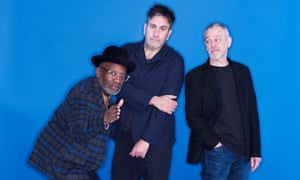
In an east London photographer’s studio, one man is dancing and two men are not. Beres Hammond is playing over the speakers and the dancer – Lynval Golding, guitarist – freeze-frames for the camera shutter, but otherwise is in constant motion. Bassist Horace Panter, determinedly non-dancey, stands dead still, chin jutting, as though he’s ready to punch you if you get too cheeky. And in between them is singer Terry Hall, who doesn’t move much. Hall’s face, though, is always changing, flicking between exasperation, resignation, wry amusement and a withering teenage side-eye. His left hand sticks out. It looks as though there’s a gap for a cigarette in between your fingers, I say, and Hall says “You’re right”, and goes outside to smoke.
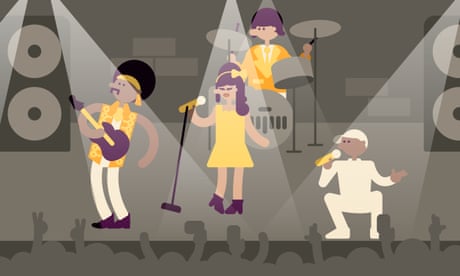
Sign up for the Sleeve Notes email: music news, bold reviews and unexpected extras
These three men are the Specials, 2019. The Specials started in Coventry in the late 1970s, a mixed-race ensemble playing a thrilling mixture of ska, reggae and punk, with pointed, politically sharp lyrics. Originally, there were seven members – the three here today, plus band founder/songwriter/keyboardist Jerry Dammers (creator of the 2 Tone record label, to which the Specials were signed), as well as singer Neville Staple, guitarist Roddy Radiation and drummer John “Brad” Bradbury. Much of the Specials’ impact back then was collective: a group of street-tough individuals, the band as gang. Their gigs were raucous, confrontational affairs, occasionally marred by far-right elements wanting to cause trouble with a group that had both black and white members.
In 1981, after their scorching single Ghost Town went to No 1, Hall, Golding and Staple left to form the Fun Boy Three. The remaining Specials added more members and continued as the Special AKA, before splitting in 1984 (though Dammers was held in a record company contract until 1987). Since then, there have been various Specials reincarnations. People have been in and out (30 members since 1979: Wikipedia has resorted to a graph). Panter was an art teacher for special needs children for a while, Golding moved to Seattle. He and Hall didn’t speak for more than a decade. Neither Dammers nor Hall rejoined for years. Hall was focused on his solo career. Dammers – who started the group and owned their name – tried to restart the Specials in the late 00s on the condition that they play new material. They got as far as two rehearsals before everyone fell out again.
The most common question from the Observer readers concerns whether Dammers will ever rejoin: when I ask it today, Hall, Golding and Panter give answers that are noticeably varied. Is the door open for him or not? Dammers himself, when I speak to him later, says that he was served with a legal letter and forced out of the band.Advertisement
“There was never a long-term plan,” says Panter. “But once we got ourselves established, the obvious thing to do would be to make a new album. It was just getting the right consensus between the individuals.”
As you can imagine, embroiled as they were in legal battles, this consensus took time. From 2009 on, the Specials, sans Dammers, toured, and then toured, and then toured again. According to Panter, it wasn’t until 2012-13 that there was a settled membership: but then, in 2013, Staple left, due to ill health, followed by Radiation in 2014. This left Hall, Golding and Panter, plus Brad, the drummer. But then Brad died, in 2015, and, once more, things were put on hold. Until last year. “We were in California playing with Neil Young and the Pretenders,” says Hall, “and I remember thinking: ‘Well, they’re writing new stuff, why don’t we?’”
Now, much-loved reggae and jazz drummer Kenrick Rowe has joined them to play live; Steve Cradock (Ocean Colour Scene, Paul Weller) is on guitar; Nikolaj Torp Larson plays keyboards and, along with Hall, Golding and Panter, wrote and produced the new album, Encore. And it’s the release of new material that changes everything. “All this,” says Panter, gesturing around the studio. He means photoshoots and interviews. “You forget, that’s what albums do.”
Encore is strong, musically, with an unexpectedly broader palette that takes in disco, funk and oompah as well as reggae. For original fans, there are callbacks. The lead single, Vote for Me, opens up with ascending Ghost Town-style chords, and there’s three covers: of the Equals’ 1970 track, Black Skin Blue Eyed Boys, of Blam Blam Fever (Gunfever) by the Valentines (1967) and of the Fun Boy Three’s The Lunatics Have Taken Over the Asylum. Prince Buster, a huge influence on the band (Gangsters, their first single, was a reworking of Buster’s Al Capone), is referenced in 10 Commandments, featuring the words and vocals of activist Saffiyah Khan. It’s a clap-back to Buster’s 1966 track that, for the benefit of any Buster-fancying woman, listed his 10 jokily chauvinistic lady friend requirements. (Prince Buster also made Princess Buster’s original 1967 answer track.)Advertisement
Lyrics take on the personal and the political, the US and the UK, though more ambiguously than the Specials’ original precision attacks. On BLM (Black Lives Matter), Golding talks us through three racist experiences from his past. And then there’s Vote for Me. Golding points out that the Specials’ (as opposed to the Special AKA) last release was Ghost Town, so it seems right that the next release, 38 years later, is Vote for Me. Hall agrees: “With Ghost Town we didn’t say, ‘This is the right way, this is the wrong way’, we just said, ‘Things are pretty shit, really’. And we’re saying the same with Vote for Me. I find it difficult to vote on anything, really. Whereas before, we were staunch Labour. Now, I feel like I don’t trust you, I don’t like your face. On a personal thing with Corbyn, I definitely can’t do it any more. But what are the alternatives?”
It must be strange to make a comeback now, to return in your middle age at a time when Britain itself appears to be determined to return to the more depressing parts of the early 80s.
“Well,” says Hall, “if we’d released a record at any point in the last eight years it would have been relevant. Because not a great deal has changed. There’s different names for it, like Brexit, which sounds nuanced, but isn’t far from the one called ‘unemployment’ and the one called ‘racism’. Look, we didn’t plan it. We didn’t say: ‘Let’s get a mix done quick, because Brexit’s out at the end of January.’”
There are non-political songs on the album. The penultimate track, The Life and Times, addresses Hall’s depression. Though his unsmiling demeanour has always been part of Hall’s appeal – “God, people saying, ‘Cheer up’ and ‘Why don’t you smile?’… I get fed up with saying, ‘Fuck off’” – a resting bitch face is far removed from the actual terror of depression.
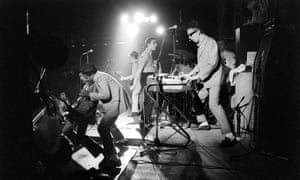
“With every record I’ve done, I’ve made reference to it,” says Hall, “but this is out-and-out. I was diagnosed with manic depression and schizophrenia about 11 years ago and that diagnosis made a big difference, because then I started taking medication. And the change in me, to be able to function… I couldn’t have done this 12 years ago. People used to say to me, ‘Why don’t you try yoga? Or St John’s wort?’ But there’s a massive difference when you’re in a deep depression and feeling shitty with the world, and the stage that I got to, where you want to give yourself a lobotomy, it’s that bad.”
Medication – “lithium, hardcore drugs” – has really helped. Hall knows that his episodes are cyclical and he can feel when a depression is coming on. “And before, I used to have to give in to it and people would say, ‘You’ve been in bed for three weeks’, and I thought it was 10 minutes. But now I can feel it coming and I can also feel the medication, it blocking it. It’s brilliant. Recognising you’re blocking it is amazing. It’s really weird. It’s like looking at a bruise develop on your leg.”
The album’s final track, We Sell Hope, is uplifting musically and lyrically, a contrast to all the excoriation that comes before.
“Well, in the end,” says Hall, “if you’re talking about each other, all you can offer is love. To respect people, and be kind to people, and hope that they give it back. They sometimes don’t but they sometimes do. But there’s that sense of hope. What else have we got?”
The photo session is done. The dancing and non-dancing are over. Hall has another cigarette and then we gather around a table to answer questions from Observer readers and famous admirers. There are more than usual. “Hmm,” says Hall. “I bet you say that every time.” (There are; I don’t.) “Fire away…”
Encore by the Specials is out now on UMC
Questions from famous fans
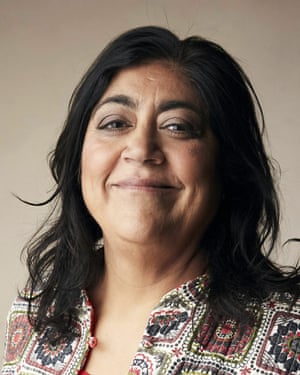
Gurinder Chadha
Film director
What moment from your height of fame are you most proud of, the moment that provides the legacy of the Specials in years to come?
Horace: Ghost Town getting to No 1.
Terry: Yes, I’d go with that. It was an unbelievably brilliant finale to what we’d done for a few years, and every band should fold after Ghost Town really, because what else are you going to do?!
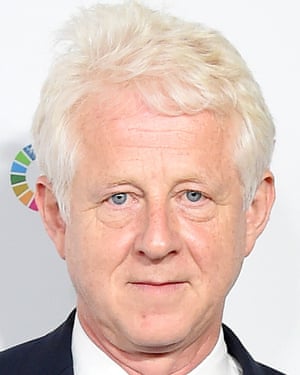
Richard Curtis
Film director
I remember going to see you in concert and you getting about 10 seconds into Ghost Town and stopping dead and pointing at some guy in the crowd, and saying: ‘If we don’t get those Nazis out of here we’re not going on with this song.’ And then waiting until they were removed. Am I imagining this? Did I dream it?
Terry: It used to happen every night, didn’t it?
Horace: It wasn’t that much of an occurrence but it did happen, I remember a couple or three times where we’d stop a show because of the NF.
Terry: They would be sieg heiling during the show. That doesn’t really happen any more. The closest thing to that was in Nottingham [2014] where somebody threw a bottle at Brad and I couldn’t do anything until he’d been taken out. It’s important to stop stuff [like that] if you see it.
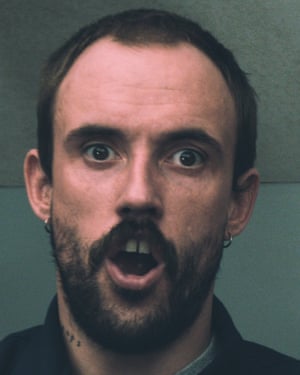
Joe Talbot
Advertisement
Lead singer, Idles
Is pop much worse now than the early 80s or am I blinded with nostalgia? Now it seems really dull when we glance at the mainstream…
Terry: I’m actually going to see Joe in a couple of weeks, his band. I don’t know. We get asked that a lot. “What are you listening to now?” And what I’m listening to now is a Grateful Dead album, because I never heard it first time round…
Horace: I’m sure there are some things that are great out there but I don’t know where to look for them. I haven’t got the time to spend a fruitless three hours ploughing through YouTube.
Terry: The last thing that I saw that I really, really liked was the Fat White Family. They were funny and everything you wanted. Bit druggy, funny, they look really good.
Lynval: There’s one band that I like. Easy Life. They’re a young band from Leicester, I saw them on Jools Holland, they’re really, really good. If I could have a vote for a band to be with us on any bill, it would be that little band. The kid’s got the right attitude. He’s a star.
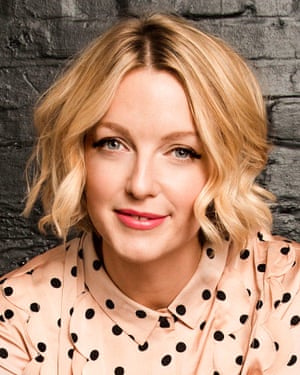
Lauren Laverne
6 Music presenter
When are you happiest?
Horace: Most of the time.
Lynval: With me, when we made the album, to get up and get on a train and go to work every day, come to the studio, that was really weird – but when we finished the record, I was completely lost. I didn’t know what to do with myself. We had so much fun doing this record. We’d take it in turns to sleep on the couch. Wake up, “Oh, that’s nice, yes,” and go back to sleep.
Terry: Probably happiest when I’m watching football. Even through all the shitty times, five minutes before kick-off you think: “This is great.” But in the last week or two do you know what’s made me happiest? In our bathroom, on the floor there’s mosaic tiles and one was lost. It’s white so I tried putting Polyfilla in, but I couldn’t get the grouting to look good. Then I thought: “Well, why don’t I look in the vac bag?” So I got the bag out and put my hand in and I found the tile. Honestly, that made me really happy. A great moment.
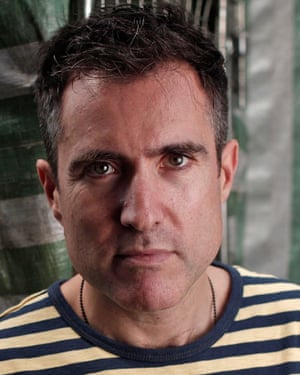
Richard Russell
XL Recordings boss
For Terry. You’re one of my favourite lyricists of all time. Who are yours?
Terry: Joe Dolce [who wrote Shaddap You Face]! No, obviously people like Leonard Cohen, and bits of Jeff Buckley, and almost all Daniel Johnson and the Roches.
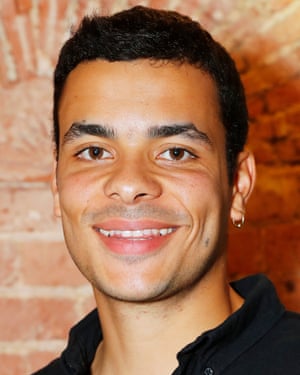
Ady Suleiman
SingerAdvertisement
What are your best memories of 2 Tone?
Horace: The Bilzen rock festival in Belgium in summer 1979. We’d just signed our record deal with Chrysalis, we were unknown, and we still had all this equipment that we’d begged, borrowed and stolen. We were on a bill with the Cure, the Pretenders, the Police and AC/DC. Nobody had heard of us, and we went on stage and just destroyed the place. There was a big fence, 12 foot in front of the stage and during the performance it got ripped down and everyone surged to the front of the stage. For me, that was the most amazing experience ever, that music could do that was incredible.
Terry: Because of bands like UB40 and the Beat too, we were doing something that wasn’t in London. It was a sense of pride in where we were and wanted to make some sort of change. Lyrically, I think what we were doing was all very similar. We were all in the Midlands, and the only band I remembered from the Midlands was Jigsaw, who blew it all sky high [chuckles].
Lynval: Lieutenant Pigeon.
Terry: Frank Ifield. All of a sudden, something was happening. Kids were connecting with us and it just felt really important.
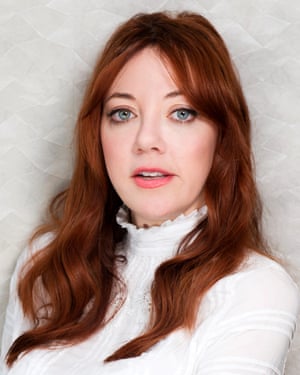
Diane Morgan
Actor
You wrote a song about a Ghost Town, but have any of you actually seen a ghost?
Lynval: I was born in Saint Catherine, Jamaica…
Terry: And he’s off…
Lynval: This man was crippled and he sat in front of this house in the village, where I come from, this brownstone house, on a mat. He died and I went down to the river with my sink pan on my head to fetch the water. It was broad daylight. I’ve got the water, I’m walking, then suddenly there he was, sitting in front of his house on his little mat. My mind just went, “Wooah, wooah,” and the sink pan of water has gone off my head. I just run. And often now, I don’t believe that I saw him, but I saw him. I still can’t grasp it.
Terry: Weed’s a funny thing, isn’t it? I definitely haven’t seen a ghost, no.
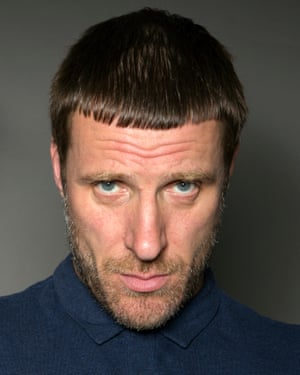
Jason Williamson
Singer, Sleaford Mods
One thing I find with accomplishment is that it can feel so insignificant overall, but I know that’s something to do with bouts of depression. Do you feel this sometimes about what you’ve done and still do as musicians?
Terry: It does matter, really, and even when it doesn’t matter, it still matters. People see success as getting to No 1 and being platinum. I don’t see that at all, I never have. I think the success is getting something inside, out, and getting someone to listen to it. That is success. For the first 20 years of my life, nobody would listen to me. Nobody. At school, jobcentres, they just didn’t listen, they were never bothered. But then you say something and somebody says, “I agree, I disagree”, and so wow, somebody’s listened. That’s success.
Questions from readers
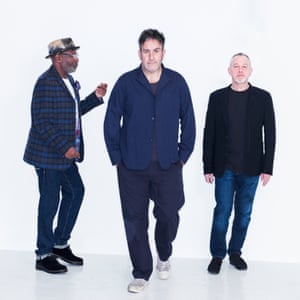
Advertisement
In my opinion you’re the best band to grace this world. Which song do you still love banging out the most?
Lee Griffiths, via email
Lynval: I like Nite Klub. It’s a bit of a naughty one: “I won’t dance in a club like this/ All the girls are slags/ And the beer tastes just like piss.” It’s what we guys, when we get together, we talk about. We don’t shout it out loud to people. I quite enjoy that.
Horace: Yes, I’ll go Nite Klub too. There’s a version of it on the deluxe edition of the album and it’s fantastic, I love it.
Terry: I quite like stuff from the second album. International Jet Set and Stereotype. Just because I’ve always had this thing about people seeing us as a ska band. We don’t play ska music, and if you look at International Jet Set, you couldn’t be more removed from ska. On the second album, I couldn’t pick one song, but I could say with that album: “Wow, something good is happening here.” And then we split up!
I remember hearing Gangsters for the first time in 1979 when I was in an amusement arcade on my school holidays. The energy of that song stopped me in my tracks and the Specials have been my band ever since. What’s your music moment that’s stayed with you?
Angelina Jones, via email
Terry: I’d go with Gangsters. When we did it on Saturday Night Live in New York. Because it felt so alien to the people on the show, the ones working there and the audience, and that was the first time I thought: “Something good’s happening here.” We took off the shackles when we did it, people were just roaming on and off stage. And it felt really like the right song at the right time. I remember doing photo sessions and people thinking we were like, a gay choir, because we all had short hair. Either ex-marines or a gay choir.
Lynval: Remember when we did it in Chicago? When they got the audience to throw these fake dollar bills on the stage? Because… gangster, yes?
Terry: Al Capone.
Miranda Sawyer: But can you think of a song that isn’t yours where you thought: this changes everything?
Horace: I was delivering car spares to a store in Birmingham. This was about 1990. And this song came on the radio, and I was standing there with this box, and this bloke was going, “Come on, give me the box,” and I go, “Shh.” And it was Smells Like Teen Spirit by Nirvana. It was the first time I heard it, and I thought, “Flippin’ heck. That’s good.”
Lynval: “Get up, stand up. Stand up for your rights” by Bob Marley, because it was around the time when we started having our own identity. We started getting away from the colonial ways that were forced on to us. And that’s when the Rasta theme started coming up, something we can call our own, you know? That really hit me.
Miranda: How about you, Terry? Is there a song you can think of that changed things for you?
Terry: I will come back to Shaddap You Face again… No, Anarchy in the UK. It was like everybody was waiting for something like that. It was a turning point.Advertisement
If someone had told me 40 years ago that a bloke like [pro-Brexit ‘yellow vest’ protester] James Goddard and his mates would be close to the profile they have today, I would’ve found it hard to believe. You played a leadership role then. What do you think needs to happen now? How do we reverse the division that people like Goddard look to exploit?
Steve E, Vancouver
Lynval: Back when we started, it was a small minority of skinheads that was pulling the wrong way. I remember one guy I met, a real National Front supporter, you know? And after I finished talking to him, we shook hands and we looked at each other, and he said he hadn’t talked to a black guy before. He wouldn’t do it. But once we talked and had a discussion…
Horace: Those people always were out there. They feel more of a licence to speak now, because we all have our platform, don’t we? This division is a knock-on effect of Instagram and Twitter and whatever. Everyone has a voice now. But there’s no filter on it. Back in our day, you would voice your discontent down the pub to your mates. Whereas now you can voice your discontent to millions of people from the privacy of your own downstairs toilet.
Terry: I think politicians love the division. It’s a great thing for them. They thrive on it. I don’t think they want everyone to be together. Brexit has conjured up so much stuff, and all these personalities are appearing, like Jacob Rees-Mogg. They like the division and I can see it getting a lot worse.
Do you feel mellowed with age or do you still get intensely wound up by current political events?
Stephen Bennett, Dublin
Lynval: I switch on CNN and wonder: “What am I watching all this for?” People calling the police because a little kid is selling water, just because the kid is black [#PermitPatty]… The one thing which I think is good with social media is, when we say: “You’ll never understand what it’s like to be black.” I think the images that come in now, but you see it and maybe understand more. You know, you walk in a shop and you know that all eyes are on you. Because you appear like a guy who’s going to come in and shoplift. Because you’re black… No, I’m not mellowed with age.
Horace: I think age has filtered a few things. The only thing I watch on television is the news, really.
Terry: I’ve definitely mellowed. But I’m at that age. I’m going to be 60 in a month, and there’s loads of shit going on, but then I look up at night and see the moon, and I just think: “Whoa.” Do you know what I mean? You see a tree that’s been there a few hundred years, and you think: “Fucking hell. This is brilliant.”
Miranda: Is that age?
Terry: No, it’s medication. When you have kids of your own and with their mates, that’s where you can be political, and that’s what I’ve tended to do, especially with my older boys when they were teenagers. Watching them go through stuff, and hopefully guiding them. My house used to be a real open house, like a youth club. Their mates always used to come round because I was like a bit “right on”, and they could smoke weed or whatever. And that’s where you try and influence so that there’s not so much anger. It’s not being mellow, you’re doing something, but you’re doing it at home, you know? Rather than just blasting it out all the time.
Horace: Micro as opposed to macro.
Advertisement
What are your thoughts on Coventry becoming a UK city of culture in 2021? Have you been approached to do something?
Liam Nagle, Coventry
Horace: I’m the only participating member of the Specials who still lives in Coventry and no, I haven’t been approached to do something. I would like to see money put by to provide for music lessons for children in schools, a proper legacy. I’m more interested in that than “Here’s a couple of boutique hotels”, and who needs another wine bar for goodness sake?
Terry: I get really bugged by this City of Culture thing. If you have to really search for the culture, you’re making it up. The landmark for me in Coventry is the cathedral.
I’m a Cov kid, who grew up as all the industry collapsed around us in the 80s and 90s, losing perhaps 100,000 jobs in that time from Jaguar, Triumph, Dunlop, Rover, Rolls-Royce, Morris, Alvis, Massey Ferguson. I wonder how you see the city today with so many of those jobs replaced by call centres? People who had repetitive production line jobs at least had the pride of being part of making something that was known, in some cases, worldwide. Now they just get shouted at by irate customers on the phone.
FlightGuileAndPies, online
Lynval: You used to have Courtaulds. They were everywhere. Massey Ferguson that does the tractors. And in Canley, Matrix Churchill, one of the last pieces of work they were doing was [making parts for arms] for the Iraq war. Obviously that war game didn’t work out for them, because war brings employment for them! It’s all gone now. Even the smell of the city is not there any more. You could smell the engineering. Back then, Coventry was thriving, an industrial city. Now it’s a student city.
Horace: Loads of barbers.
Lynval: And chicken shop takeaways. It’s all revolving around students. Working class, labour people – once the industry goes away, then all the traditional pubs, they die. The working men’s clubs, they die. Like what my father used to go to, Rowley’s Green Working Men’s Club. They’re not there any more.
Horace: There’s still manufacturing in Coventry.
Lynval: You’ve got Triumph motorbikes.
Horace: London taxis are made in Coventry.
Terry: All my family worked in factories. My mum worked for Chrysler, my dad worked for Rolls- Royce. Aunt. Everybody worked in the car factories, and there was a real sense of community. Everybody felt on an equal level, all getting cash every week. I didn’t really notice the decline, really, until it had happened, but then it was massive. It’s difficult with Coventry because I moved away for specific reasons. I couldn’t fucking stand it.
What was it like touring with the Clash?
Peter Milne, Norwich
Lynval: It was absolutely an eye-opener. Joe Strummer was a wonderful, wonderful human being, and being in that group of people at that time, there was so much excitement. Because we did our little pub thing, but this was like the next level up. It was just a wonderful vibe. Like one big party.
Horace: We learned how to present a show while on tour with the Clash. You would see how they go on stage and it was just like, Bang. We learned to give 100%. Not just shamble on stage and “If you don’t mind, we’d like to play a few songs.” We were totally different after that tour. I always say that we started that tour as civilians but ended it as a group.
Terry: And after the Clash thing, that’s when we cut our hair, because we discovered what we should look like by doing that tour. And then you end up in Crawley with about 1,000 skinheads gobbing at you.
Horace: That was scary.
Terry: Yes, that was really scary. But it was great because Suicide were on that tour as well. And Sham did stuff. [Jimmy] Pursey was there. For me, it was like, “How do you react to an audience?” The fans tell you the songs they like. They like Monkey Man, definitely. And A Message to You, around the world.
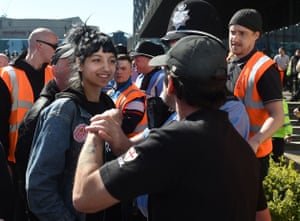
Advertisement
I heard activist Saffiyah Khan has sung on the album. How did this come about?
Barry Mingard, Welwyn Garden City
Terry: We saw Saffiyah in that photo. She had a Specials T-shirt on, and she was standing up to a member of the EDL, who was screaming at her, and she just smiled back. A fantastic reaction, because it made him look stupid. So we got in touch with her and said: “Come to our gig in Birmingham.” Then when it came to recording the album, we were thinking about people who might like to be on it, and she was definitely in my head as somebody who could have something to say. And at the same time I was listening to Prince Buster, Ten Commandments of Man, and I couldn’t believe…
Miranda: How rampantly sexist it is?
Terry: It goes back to Dave Lee Travis, like hand-on-the-arse times. So then the idea came like: “Wouldn’t it be nice to do an answer to that?” But obviously from a woman. Saffiyah was the obvious choice, and we just said to her: “Here’s the Prince Buster song. Do you want to try to reply to it?” And she got on with it.
Bloody hell, I don’t think I’ve seen such effortlessly cool looking gentlemen ever. Please give me a clothing tip.
Tenement Funster, online
Horace: Smart casual. And wear your T-shirt outside your jeans.
Lynval: Horace is stepping up now, he’s the man. Me, I love that sort of stuff from the 70s, like reggae style, you know? Gregory Isaacs.
Terry: It’s simple. Avoid horizontal stripes. Didn’t work when you were 18 mate, and now you’re middle aged.
Terry, as a lifelong Man United fan, what do you think Ole Gunnar Solskjærhas to do to get the manager’s job full time?
Thehumblegent, online
Terry: No idea what he has to do. I mean, he just wins at the moment. He’s such a lovable bloke and a real legend, but whether he’ll keep the job, who knows?
Lynval: He’s a real Man U guy, he spent half his life there, it’s in his blood, and it’s got to be in your blood to be able to manage a club like that. I think they should hold on to him, and give him the job full time. It could be another Fergie in the making.
Terry: I think realistically, for me, Ferguson is managing the club again. He’s using Solskjær as his mouthpiece. Ferguson is smiling way too much.
Lynval: It’s brilliant. The next legend manager.
Now you’re doing new material like Jerry wanted to do when you reformed, isn’t it time to let him back into the fold?
Bloodydoorsoff, online
Horace: (Quietly but decisively) No. Next question.
Lynval: I think having Nikolaj Torp Larsen, we’re really fortunate to have a kid like that who’s so talented. I was one of the last ones to work with Jerry, I enjoyed working with him. If you’re going to make music, you want to make music with people that you respect as musicians. I do respect him a lot.
Terry: The whole Jerry thing, it’s like, from day one, I’m not sure why he isn’t in the band. I honestly don’t know, because we all started rehearsing together [for the 2009 reunion] and he sort of dropped out. I don’t know what happened there. I don’t know why he isn’t in the band, do you know what I mean? He just, dropped out. It’s his stuff really, it’s not our stuff. He chose not to be in the band, for whatever reasons.
Miranda: What about if he said: “Oh, can I come back?”
Terry: I’d just tell him to fuck off. [laughter] No, I wouldn’t. No, I wouldn’t. I’d get management to tell him. He can come back, it’s up to him what he’s going to do.
Why aren’t Neville, Roddy and Jerry back in the band?
Diesel Estate, online
Horace: They left.
Lynval: They left. It’s as simple as that. Roddy left the band, Neville left the band. Jerry didn’t fully join the band back. There’s nothing we can do about it.
Terry: Roddy and Neville feel comfortable where they’re at. They play pubs and small clubs, and I think if you lack that much charisma then that’s probably a wise thing. They enjoy small intimate venues with very few people there. That’s where they feel most comfortable.
For Terry and Horace. What does painting do for you that making music doesn’t?
Sam McNichols, London
Terry: When I was at my ill-est, it triggered something in my brain that wouldn’t allow me to talk or walk for three weeks. Because I couldn’t say anything, I had to write everything down. And a doctor said to me: “Paint.” And actually painting was something that was coming out of my head that I could show to people. For them, in Horace’s case, to despise. [laughter from all]
Miranda: It’s a reaction.
Terry: I’ve got a fixation on the Jackson 5, so I painted the Jackson 5 for six months, and then it was pointed out to me that I’d painted six. Six Jacksons, so I renamed the extra one Phil Jackson. It’s all getting it out, and who cares whether it’s right or wrong, I don’t give a shit.
Horace: Music for me is a collaborative process, I’m a bass player. I have to work with a drummer, a singer, a keyboard player, I’m a cog in a machine. The art is kind of my solo album.

